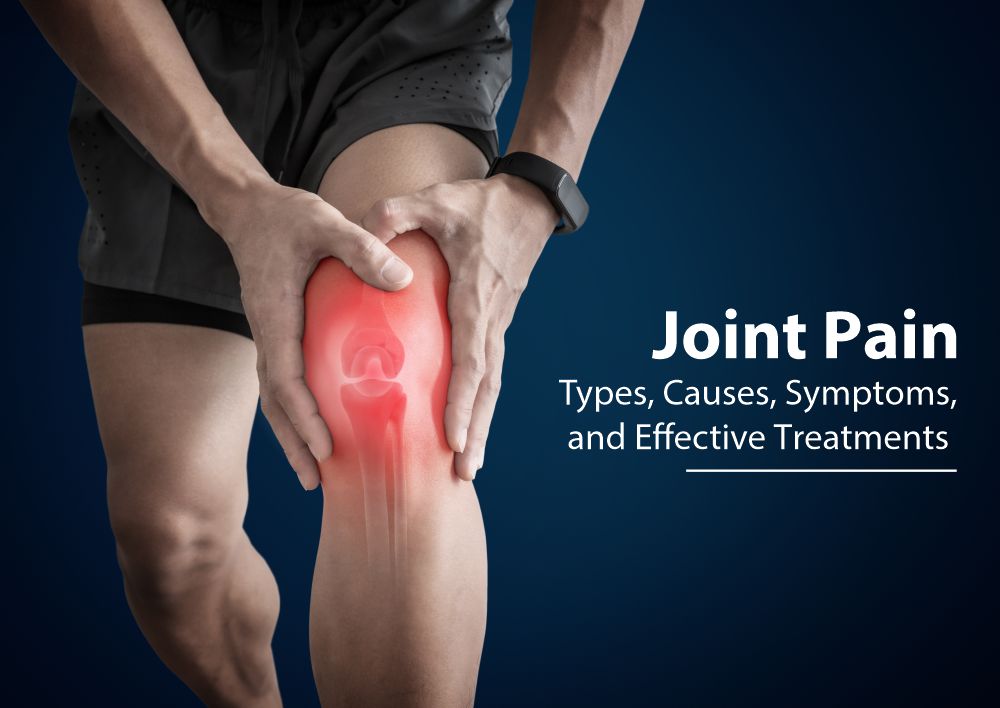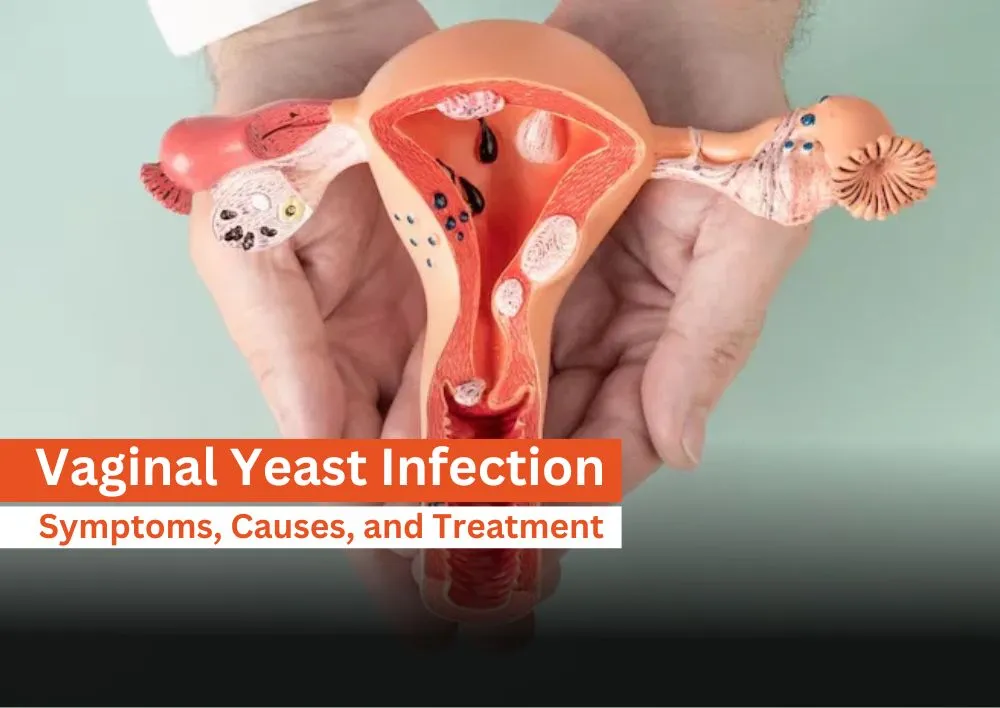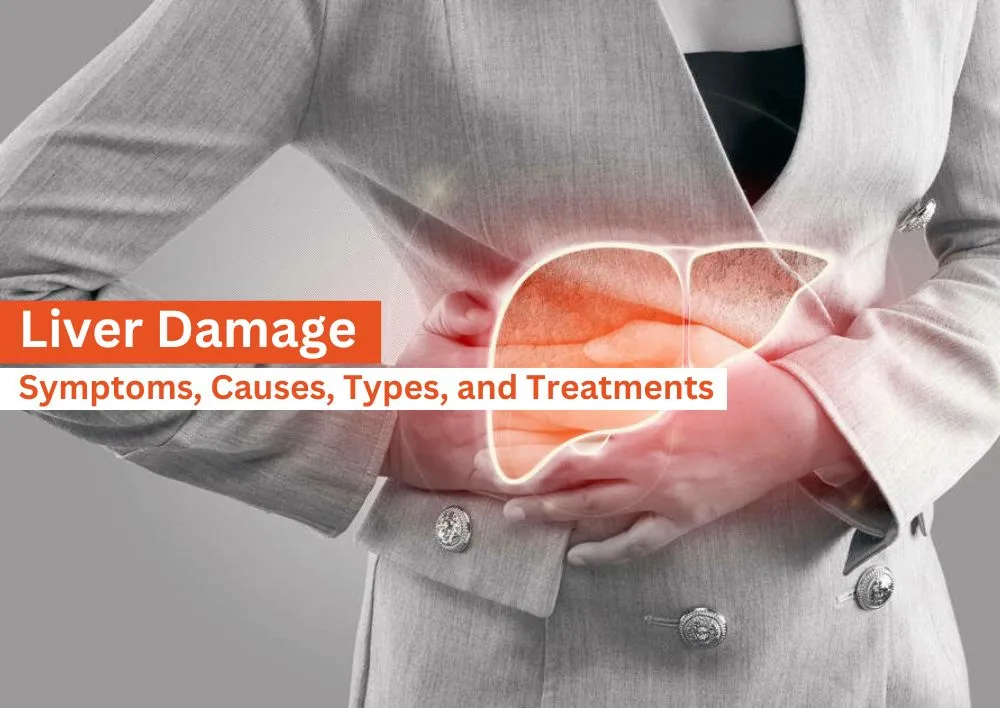Understanding Joint Pain: Types, Causes, Symptoms & Effective Treatments
Joint pain is a very common condition in people of all ages. It can affect the quality of life as a result of aging, injury, or any medical condition.
When joint pain slows you down, don't settle for anything less than world-class care. Choose Miracles Apollo Cradle/Spectra, where renowned orthopedic doctors in Gurgaon, cutting-edge technology, and a personalized approach come together to defeat your pain. From advanced pain management techniques to expert physical therapy, we craft a comprehensive treatment plan tailored to your specific needs. Don't let joint pain steal your life and reclaim your joy of movement with a consultation with us.
In this blog, we will discuss joint pain, its different types, symptoms, underlying causes, and treatment options to manage and relieve the symptoms.
What is Joint Pain?
The joint is where the ends of two or more bones combine. Joint pain is a very common discomfort that can be felt in one or more joints. It can affect people of any age. Various factors cause pain in the joints including arthritis, injuries, overuse, and infections. The type and severity of the pain in joints can vary depending on its underlying cause.
What are the Types of Joint Pain?
You can experience pain in a single or more than one joint at the same time. There are different types of joint pain depending on the site of involvement. Some common types of joint pain include:
-
Neck pain
-
Foot pain
-
Hand pain
-
Elbow pain
What are the Common Symptoms of Joint Pain?
-
Persistent pain and tenderness in one or more joints.
-
Swelling
-
Stiffness
-
Limited range of motion
-
Redness and warmth around the affected joint
-
Fatigue
-
Pain is worse while walking
What Causes Joint Pain?
Here are some of the most common causes of joint pain:
-
Osteoarthritis: This is the most common type of arthritis. Osteoarthritis is caused by wear and tear of cartilage in the joints. This degeneration is especially noticeable in weight-bearing joints like knees, hips, and spine. The pain of this condition is usually worse in the morning and after periods of inactivity.
-
Rheumatoid Arthritis: Rheumatoid arthritis (RA) is a chronic autoimmune disease. It attacks the same joints on both sides. They cause pain and swelling in the joints.
-
Gout: This is a condition that is caused by an increased level of uric acid in the body. Gout causes sudden and severe pain in the joints, especially in the big toe.
-
Bursitis: It is an inflammation of the fluid-filled sacs that cushion the joints. Bursitis is characterized by pain that usually becomes worse with movement.
-
Tendinitis: It is an inflammation of the tendons that connect muscles to bones. Tendinitis is characterized by pain that becomes worse with movement.
-
Injuries and Trauma: Sprains, repetitive strains, accidents, and fractures can damage the joints and cause joint pain.
-
Infections: Joint pain may result from infections that affect the joints, such as Lyme disease.
What are the risk factors for joint pain?
Understanding the underlying risk factors can offer valuable information for preventive measures. Here are some of the key risk factors for joint pain:
-
Age: As we age, our cartilage wears and tears naturally making us more sensitive to osteoarthritis.
-
Family History: If your family history of joint pain or any condition that causes joint pain, then you might be at a higher risk of developing it. Eg. Some forms of arthritis, like rheumatoid arthritis, have a strong genetic component.
-
Weight: Obesity or being overweight puts strain on your joints, especially the knees and hips. Excess weight increases pressure and can cause cartilage breakdown.
-
Repetitive Stress: The overuse of specific joints leads to inflammation and pain. Athletes, laborers, and individuals with physically demanding jobs are especially inclined to this type of joint pain.
-
Previous Injuries: Past joint injuries can also increase your chance of arthritis and joint pain in the future. Sprains, strains, and fractures can damage the soft structures within a joint and make it more susceptible to degeneration.
-
Certain Medical Conditions: Certain medical conditions like lupus, Lyme disease, and gout can start with joint pain as their symptoms.
-
Vitamin Deficiencies: Deficiencies of specific vitamins such as Vitamin D and K in your body can impact bone and joint health. It can lead to joint pain and discomfort.
-
Lack of Physical Activity: Strenuous exercise and inactivity can be a risk factor. They can weaken muscles and connective tissues, ultimately leading to pain and instability in joints.
How Joint Pain Can Be Diagnosed?
Diagnosing joint pain involves a multi-step approach. Here is an overview of the process:
Medical History and Symptoms:
-
An orthopedic specialist will take your medical history, including past injuries, any existing conditions, and a family history of joint problems.
-
Then they will ask about the symptoms you are experiencing, the location and the duration of the pain.
Physical Examination:
-
The ortho doctor will examine the affected joint(s) for tenderness, warmth, muscle strength, swelling, range of motion, and any visible deformities.
Laboratory Tests:
-
Blood tests: Your joint specialist may order blood tests to identify underlying conditions like rheumatoid arthritis, gout, or infections.
-
Urine tests: They can also order urine tests to rule out certain causes.
Imaging Tests:
-
X-rays: To visualize the internal structure of the bone, they may order an x-ray test. It helps identify joint damage or arthritis.
-
Ultrasound: They may order an ultrasound scan to evaluate the soft tissues like tendons and ligaments around the joint.
-
Magnetic resonance imaging (MRI): If your orthopedic specialist requires detailed images of both bones and soft tissues, they may order an MRI scan to diagnose complex joint problems, indicating ligament, meniscus and cartilage injuries.
What is the Treatment For Joint Pain?
The treatment for joint pain depends on its severity and underlying cause of pain. Some common treatment options include:
Non-invasive Approaches:
-
Rest: It reduces inflammation and gives the body time to heal.
-
Ice and Heat: Ice packs followed by heat therapy help reduce swelling, and pain and improve flexibility.
-
Pain Relievers: Over-the-counter pain medications like acetaminophen or nonsteroidal anti-inflammatory drugs (NSAIDs) can provide temporary relief from joint pain.
-
Weight Management: Losing weight can reduce pressure on your joints, especially your knees and hips.
-
Physiotherapy: Physiotherapy treatment including exercises and stretches can help strengthen muscles, improve joint mobility, and reduce pain.
-
Braces and Splints: The braces and splints can provide support and stability to inflamed or injured joints.
-
Lifestyle Modifications: Eating a healthy diet, getting enough sleep, and managing stress can all help in pain management.
Medical Interventions:
-
Corticosteroid Injections: Corticosteroid Injections are injected directly into the joint. They reduce inflammation and provide targeted pain relief.
-
PRP Injections: These are used to accelerate healing.
-
Disease-Modifying Anti-Rheumatic Drugs (DMARDs): These medications are used to treat rheumatoid arthritis and slow the disease progression.
Surgery:
In severe cases, orthopedic surgeons may recommend joint different surgical procedures depending on the condition to provide relief.
Here are some common surgical procedures:
-
Joint replacement: The joint replacement procedure involves replacing damaged joint surfaces with artificial implants. This surgical procedure is most commonly recommended in the case of severe knee replacement, hip replacement, and shoulder problems.
-
Arthroscopy: This is a minimally invasive procedure. Arthroscopy uses a camera and small instruments arthroscope to diagnose and treat joint problems inside the joint. It is recommended for ligament reconstruction or cartilage restoration.
-
Other procedures: An orthopedic surgeon may recommend some other surgical procedures like tendon repair, joint realignment, etc depending on the specific condition.
Alternative Therapies:
Additionally, there are various alternative therapies including:
-
Acupuncture: It is a traditional Chinese medicine practice. It involves inserting thin needles into particular points on the body to stimulate the nervous system and relieve pain.
-
Massage Therapy: Massage can reduce muscle tension, improve circulation, and promote relaxation.
-
Yoga: The yoga exercises can improve flexibility, and balance, and reduce joint pain.
While alternative therapies can be supportive, consulting with an orthopedic specialist is important for an accurate diagnosis and treatment plan.
How can Joint Pain be Prevented?
Joint pain can impact your mobility, comfort, and quality of life. There are several steps you can take to prevent or reduce the risk of joint pain including:
-
Maintain a Healthy Weight
-
Exercise Regularly
-
Build Strong Muscles
-
Stretch Regularly
-
Protect Your Joints
-
Pay attention to your body's indications
-
Correct your posture
-
Manage Stress
-
Quit Smoking
Conclusion:
Joint pain is a common condition that can result from various causes. There are various treatment options including medications, lifestyle changes, medical interventions, or surgical interventions to help individuals find relief and lead to a healthy life despite joint pain. If you're experiencing persistent joint pain, it's important to consult with an orthopedic surgeon near you for a proper diagnosis and tailored treatment plan.
Miracles Healthcare is the best orthopedic hospital in Gurgaon for joint pain treatment. Our experienced team of ortho doctors in Gurgaon leverages cutting-edge technology and personalized treatment plans to find the root cause of your pain. From pain management techniques to minimally invasive surgeries, we offer a comprehensive range of options tailored to your needs.
Miracles Healthcare offers comprehensive healthcare services through multiple facilities: Miracles Apollo Cradle, Miracles Apollo Cradle/Spectra, Miracles Fertility & IVF Clinic, and Miracles Mediclinic. Our facilities are located in Sec 14, Sec 56, and Sec 82, making daily healthcare more convenient for the people of Gurgaon.
Don't let joint pain slow you down. Schedule your consultation today with a Joint pain specialist near you at Miracles Healthcare and walk pain-free into your future.





_in_Pregnancy.webp)






Was the information useful?
1 0